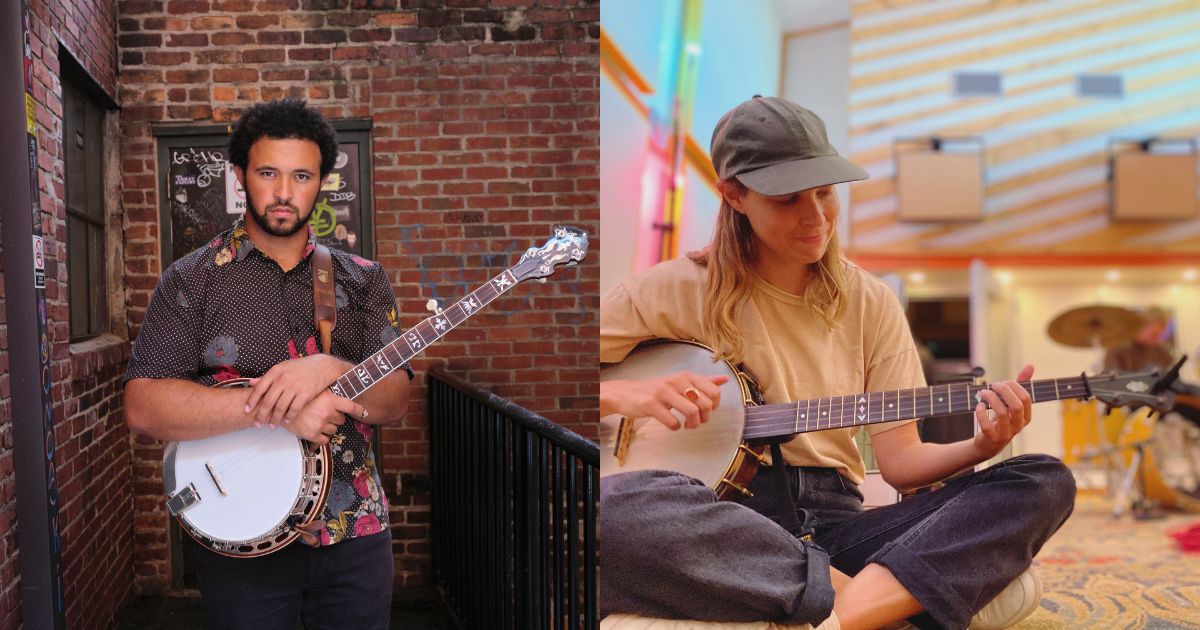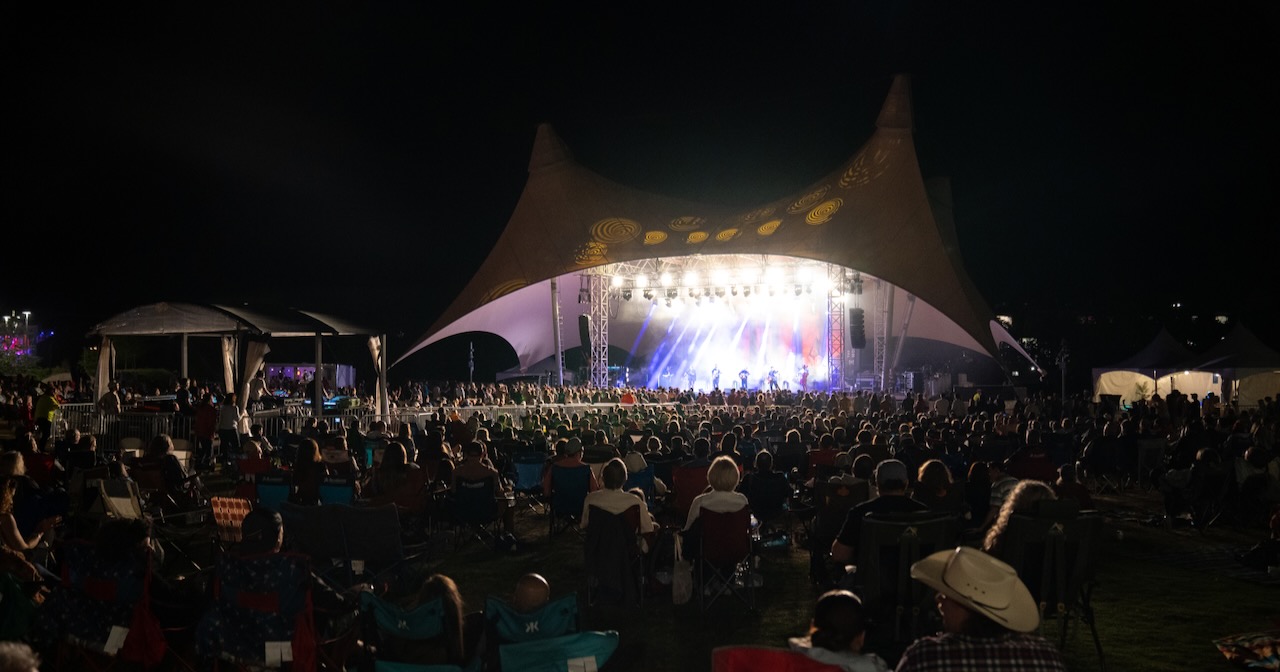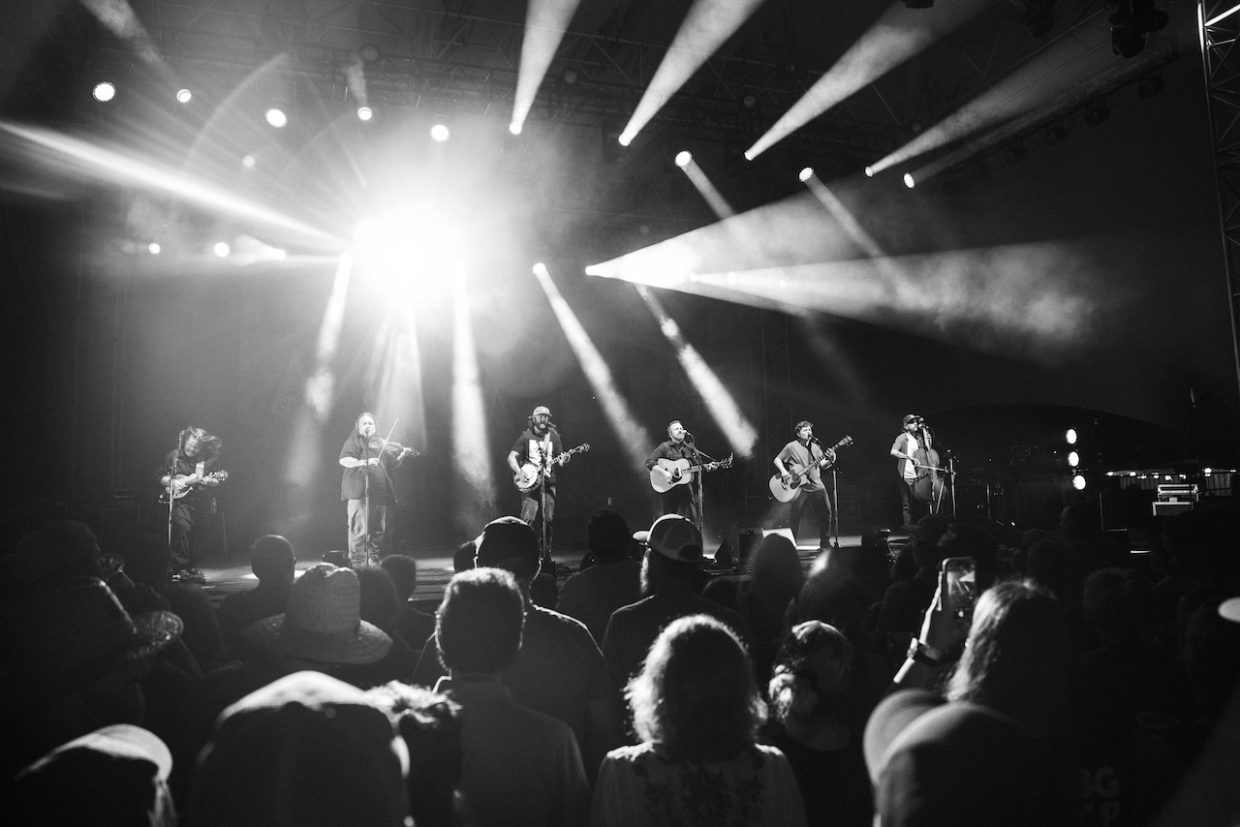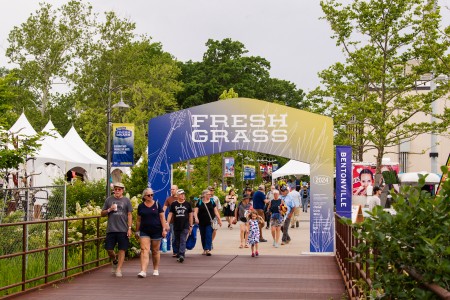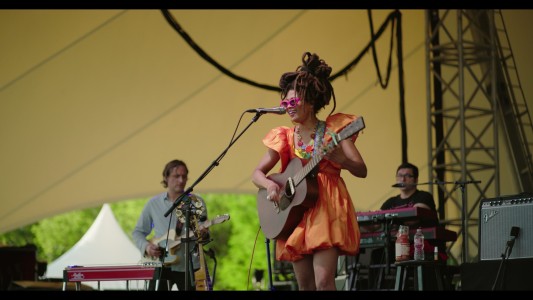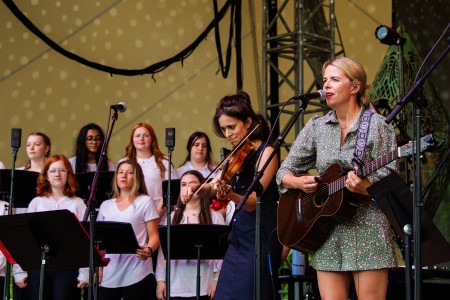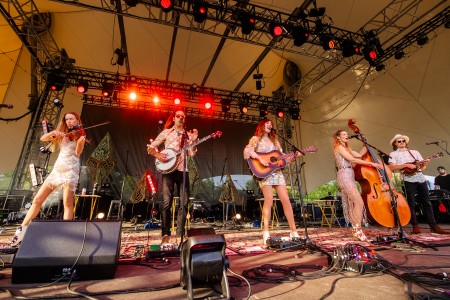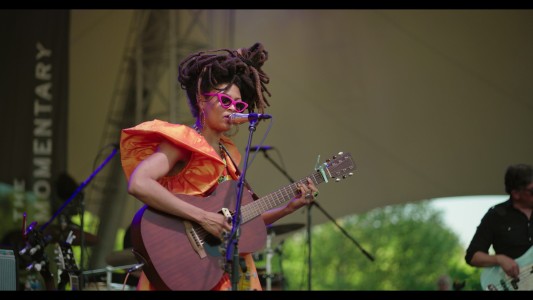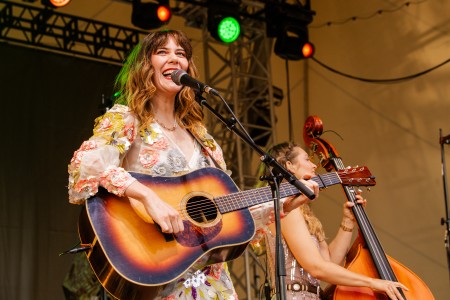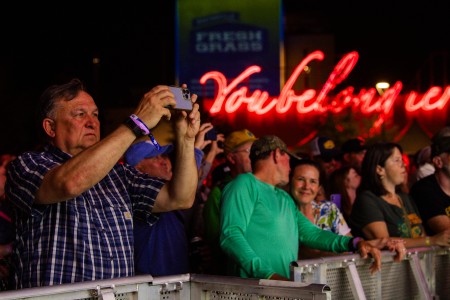On Tuesday, December 17, actor, comedian, and banjoist Steve Martin and the board of his Steve Martin Banjo Prize – now in its fourteenth year – announced this year’s winners of the $25,000 prize. Founded in 2010, the Steve Martin Banjo Prize for Excellence in Banjo has since awarded more than $500,000 in unrestricted prize funds to banjo players across the genre and style spectrum. The inaugural awardee in 2010 was modern banjo luminary Noam Pikelny; in successive years the list of recipients has grown rapidly, including such players, leaders, and composers as Rhiannon Giddens, Terry Baucom, Don Vappie, Jake Blount, Victor Furtado, Eddie Adcock, and many more.
This year, the prize’s two recipients are banjo pickers on the cutting edge of the instrument’s bright future in two distinct styles, Allison de Groot (one of the foremost old-time, clawhammer/frailing banjo players of her generation) and Tray Wellington (a Scruggs-style picker with a striking postmodern, newgrass approach.)
“Exploring had always been part of my personality since I was a kid,” Wellington explained via press release. “Music is the same way for me. Since I started playing banjo at 14, I had ideas for how I could constantly expand my musical vision and make my personality shine through banjo. Every day I am still on that journey and cannot wait to continue this pursuit.”
And exploration is certainly a hallmark of Wellington’s approach to the instrument. His right-hand approach is decidedly traditional, it’s powerful and assertive with limitless drive. While his left hand is mind-bending in its virtuosity, combining influences and textures from envelope pushers like Pikelny and Béla Fleck, he pulls an equal measure of inspiration from outside of bluegrass and roots music, as well.
Take for instance his rendition of Kid Cudi’s “Pursuit of Happiness.” A layperson or bluegrass passerby might not ever expect a Kid Cudi cover performed at a roots music festival, let alone a straight-ahead bluegrass festival, but in almost every instance and context this writer has heard Wellington and band perform the number, the reaction from his audiences is electric. A buzzing excitement ripples through the crowd, murmuring recognition spreading like the most virulent contagion known to man (banjo) always does.
His live performances and through-composed instrumental pieces are out of this world, like his original “Moon in Motion 1” and “Spiral Staircase” from his most recent EP, Detour to the Moon. His 2022 full-length debut, Black Banjo, was critically acclaimed and well-received in bluegrass and beyond, combining new acoustic, jazz, Americana, and ‘grass together in his own particular blend. The project was something of a statement of perspective for Wellington, but that point of view has been anything but static since Black Banjo.
A nominee for multiple IBMA Awards – and 2019 winner of their Momentum Instrumentalist Award – Wellington is certainly right at home on bluegrass festival stages, but his music is expansive, broad, and fully-realized no matter the context. It’s clear he makes his musical and repertoire choices for himself first and foremost and following that, for a forward-thinking, equally broad audience to whom he’s directly bringing his songs and story.
This is the power of a picker like Wellington, to energize and electrify an audience – whether diehard banjo fans or new initiates – with a sound totally his own. It’s exactly how Earl Scruggs became the legendary figure of American music that he is today, by causing thousands of “What the hell is this magic?!” reactions from his listeners and bringing countless scores into the music with that inimitable sound alone.
For her part, de Groot is also a committed borderless musical explorer: “It still feels just as exciting as it did the first day I picked it up,” she relays in a press release. “I feel like I could live 100 lifetimes and explore the banjo.”
Meanwhile, her voice on the instrument would already seem to indicate multiple lifetimes lived on the banjo. A veteran of groups such as Bruce Molsky’s Mountain Drifters, the Goodbye Girls (with Lena Jonsson, Molly Tuttle, and Brittany Karlson), and duo outfits with folks like Nic Gareiss and Tatiana Hargreaves, de Groot has an absolutely idiosyncratic approach to old-time, clawhammer, and frailing styles.
Perhaps her most jaw-dropping achievement – to this banjo player, at least – is how melodic, intricate, and grounded her playing is. De Groot plays with the precision of a three-finger player and with a very similar rhythmic foundation, making it particularly compelling when she leans into melodic intricacies usually left to bluegrass strains of banjo playing. Her execution of Irish tunes on old-time banjo, too, are fantastic and baffling. How does she do it??
There may not be a more lyrical clawhammer banjo player around today, though de Groot has excellent company (Cathy Fink, Brad Kolodner, Victor Furtado, Nick Hornbuckle) in this rarest of niches she inhabits. Don’t get it twisted, though, this is a picker with grit; this frailing has teeth. At the same time, her playing never strays toward iconoclastic banjo pitfalls like showing off or territorialism or horse-measuring contests.
Her style is incisive, deliberate, and bold, and at the same time liberated by her commitment to listening and making music in partnership with her collaborators, whoever they may be and whatever styles they may dabble in. While the prize and the visibility it lends are beyond well-deserved, it’s clear that de Groot’s reputation as a superlative banjo technician is already well known across musical communities – take, for example, her and Hargreaves’ recent collaboration with guitarist and composer Yasmin Williams on “Hummingbird.”
As evidenced by this short primer on each of these fine banjo pickers, Wellington and de Groot are excellent choices to receive the Steve Martin Banjo Prize as selected by the award’s board – which currently includes Steve Martin, Alison Brown, Béla Fleck, Noam Pikelny, Anne Stringfield, Tony Trischka, Pete Wernick, Johnny Baier, Kristin Scott Benson, Roger Brown, Jaime Deering, Dom Flemons, Paul Schiminger, Chris Wadsworth, and Garry West.
Both Wellington and de Groot are young players poised to open minds and open up the instrument in exciting, engaging, and innovative ways – because that’s what the banjo has always been about.
Today, December 17, at 5:30pm ET / 2:30pm PT, viewers can tune into Deering Live to enjoy a livestream celebrating the two winners featuring Alison Brown as co-host and including interviews and performances. Tune in here.
Photo Credit: Allison de Groot by Phil Cook; Tray Wellington courtesy of the Steve Martin Banjo Prize.
